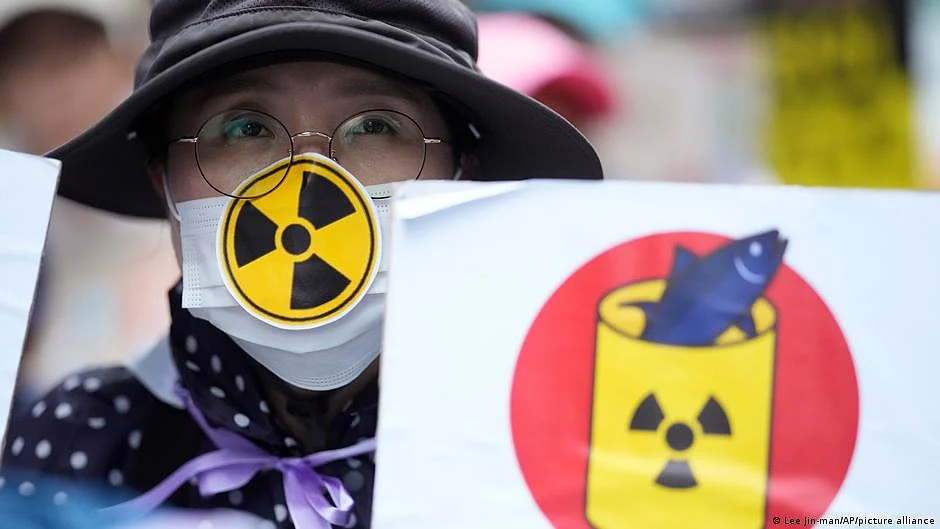Japan to release Fukushima water into Pacific Ocean
Water will be released, if weather conditions allow, into the ocean off Japan's northeast coast at a maximum rate of 500,000 liters (132,000 US gallons) per day

Japan is set to release water from the stricken Fukushima nuclear power plant into the Pacific Ocean starting Thursday, marking a significant step 12 years after one of the world's worst nuclear disasters.
Prime Minister Fumio Kishida announced on Tuesday that the gradual discharge of over 500 Olympic swimming pools' worth of water from the site in northeast Japan is "safe."
Water will be released, if weather conditions allow, into the ocean off Japan's northeast coast at a maximum rate of 500,000 liters (132,000 US gallons) per day.
Also Read: Japan: Typhoon Khanun lashes Okinawa
China criticizes Fukushima water dump plans
China, which has already imposed partial restrictions on Japanese food shipments, strongly criticized the announcement. Hong Kong also announced a ban on importing "aquatic products" from 10 Japanese regions.
The Fukushima-Daiichi nuclear power station was knocked out by a massive earthquake and tsunami that killed around 18,000 people in March 2011, sending three of its reactors into meltdown.
Since the disaster, the plant's operator, Tokyo Electric Power Co. (TEPCO), has collected 1.34 million tons of water that were used for cooling remains of the still highly radioactive reactors. The water collected from the plants also contains groundwater and rain that seeped in.
"The water will be diluted and filtered to remove all radioactive substances except tritium, which is well below hazardous levels," TEPCO said.
The operator added that it would take "necessary measures to safeguard the marine environment, food safety and public health."
China's Foreign Ministry spokesperson Wang Wenbin said Tuesday, "The ocean is the common property of all humankind, not a place for Japan to arbitrarily dump nuclear-contaminated water."
Experts and NGOs fear environmental effects
A nuclear expert, however, said the level of tritium in the Fukushima plant water was well below World Health Organization (WHO) drinking water limits.
"Tritium has been released [by nuclear power plants] for decades with no evidential detrimental environmental or health effects," Tony Hooker, a nuclear expert from the University of Adelaide, told news agency AFP.
The UN atomic watchdog, the International Atomic Energy Agency (IAEA), said in July the release would have a "negligible radiological impact on people and the environment."
Environmental groups have still expressed concerns regarding the announcement.
Japan "has opted for a false solution decades of deliberate radioactive pollution of the marine environment — during a time when the world's oceans are already facing immense stress and pressures," Greenpeace said Tuesday.
Many South Koreans are also alarmed at the prospect of the release, staging demonstrations to voice fears of contamination.
Dozens of protesters gathered in front of the Japanese Embassy in South Korea's capital Seoul on Tuesday, with more rallies planned.
One protester held up a sign saying: "We denounce the Japanese government for killing the ocean!"
Follow us on: Facebook, Twitter, Google News, Instagram
Join our official telegram channel (@nationalherald) and stay updated with the latest headlines
